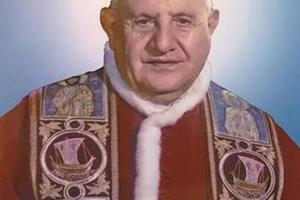Grasping Vatican II
Book review of The Relevance and Future of the Second Vatican Council

THE RELEVANCE AND FUTURE OF THE SECOND VATICAN COUNCIL
By Cardinal Marc Ouellet and
Father Geoffroy de la Tousche
Ignatius Press, 2013
187 pages, $16.95
To order: ignatius.com
Editor’s note: This is the first of three Register "book picks" on the Second Vatican Council. The Relevance and Future of the Second Vatican Council is the newest book of the Register’s Vatican II picks.
Canadian Cardinal Marc Ouellet, head of the Vatican’s Congregation for Bishops and a renowned theologian, recently granted a series of interviews to Father Geoffroy de la Tousche, a French theologian and specialist on Vatican II. The resulting book, The Relevance and Future of the Second Vatican Council, is a must-read for any serious Catholic.
Father de la Tousche’s theological expertise facilitates questions which go far deeper than those that a journalist might offer. Yet both the interviewer and the cardinal use accessible, contemporary language without trapping the discussion in the heavy language of academia that can leave many, including fellow academics, wondering what they just read.
The book weaves the narrative of Cardinal Ouellet’s life with a conversation about the lead-up to the Second Vatican Council, the Council itself and subsequent understandings of the Council.
In the forward, Father de La Tousche cites the mandate set by John Paul II in 2002: "We must return to the Council."
Benedict XVI followed the same theme in his 2005 Christmas address to the Roman Curia and in one of his last public meetings when he met with the clergy of the Diocese of Rome in February 2013. In the latter address, he described two Councils: "There was the Council of the Fathers — the true Council — but there was also the Council of the media. … And the world perceived the Council through … the media." For a while, he noted, the virtual Council was stronger than the real Council. But now, 50 years after the start of the Council, the real one prevails.
This book helps to fulfill the mandate given by both popes by identifying the core elements of the Council and their implications. These include the centrality of Christ, the Church as a sacrament, the nuptial meaning of both the married and clerical vocations and the universal call to holiness, which the cardinal maintains was sometimes better received by the laity than the clergy and religious.
For too long, Catholics of varying persuasions have given their personal opinions about the Council without ever looking to the documents themselves, much less consulting experts, whose only agenda is to unpack the teaching in a way consistent with Church teaching rather than to advance their own particular interests and preferences.
For a theologian, there’s a fine line between creating one’s own theology and doing the work to advance the teaching of the Church.
Long before he was elected pope, Cardinal Joseph Ratzinger authored a small work for the Congregation for the Doctrine of the Faith, Instruction on the Ecclesial Vocation of the Theologian, in which he specifically addressed this tension.
The Catholic theologian’s job is to make clear what the teaching is so that people can be well informed when they decide whether or not they agree. As was famously noted by Venerable Archbishop Fulton Sheen, most people who disagree with the Catholic Church do so based on what they think she teaches rather than what she actually teaches.
My well-marked copy of Father de la Tousche’s interview with Cardinal Ouellet will be a much-used reference source in my personal library because they did the work of theologians so well.
The Church doesn’t call councils so that the hierarchy can pat each other on the back for a job well done. Councils address crises.
We are only just beginning to unpack the profound teaching of the Second Vatican Council; this book will certainly aid those who want to understand the true Council.
Pia de Solenni is a moral theologian and cultural analyst. She is based in Seattle.
- Keywords:
- April 20-May 3, 2014

















